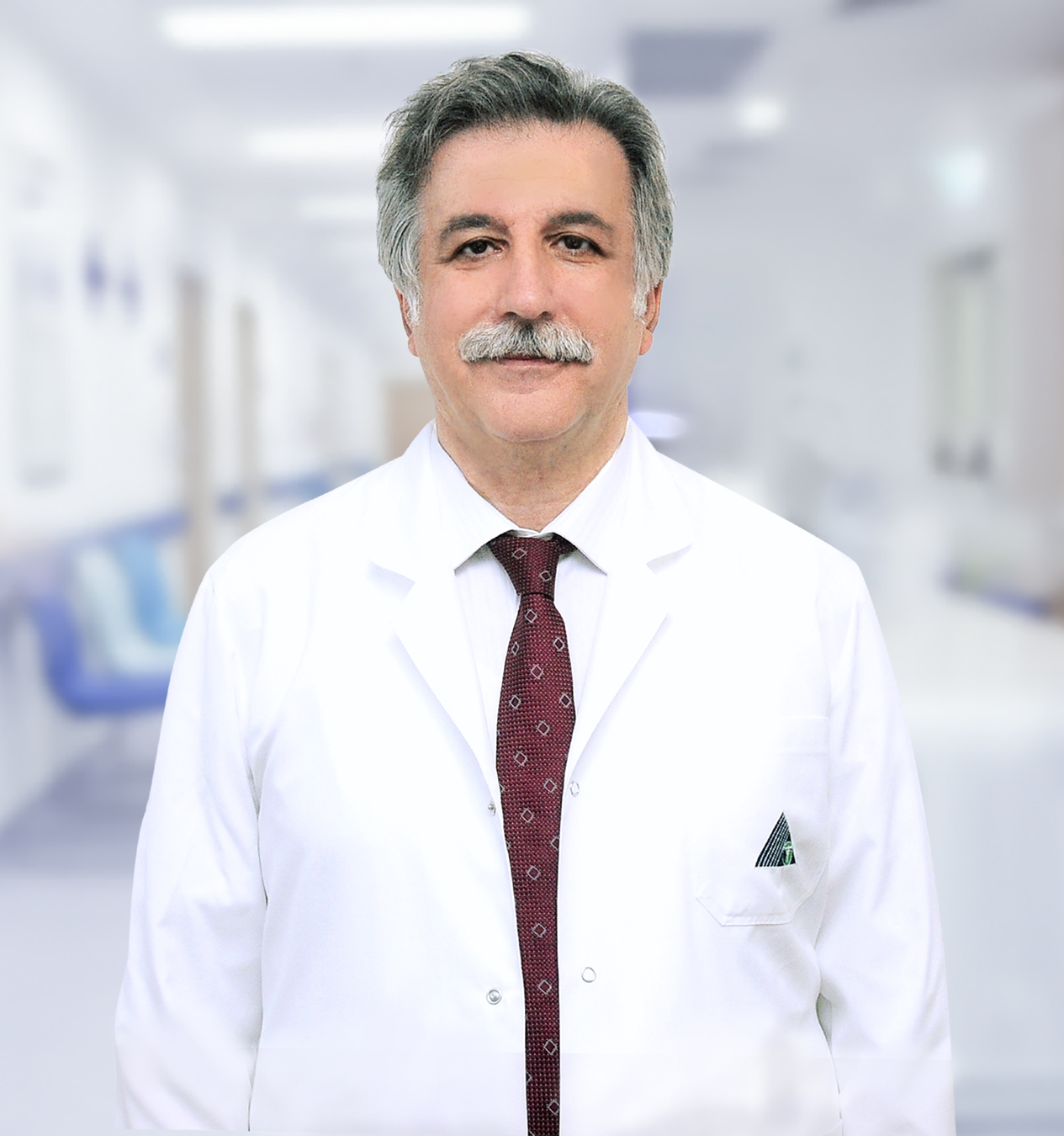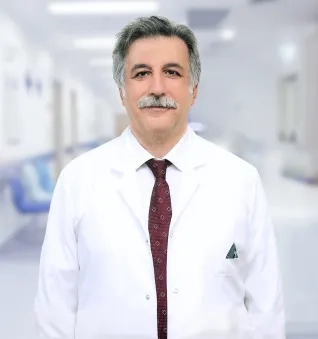Alo Yeditepe
Alo Yeditepe
Pelvic Floor Muscles Should Be Addressed with a Multidisciplinary Approach
Health professionals came together at the meeting titled "Perspective on the Pelvic Floor with a Multidisciplinary Approach" held at Yeditepe University Hospitals. At the meeting, where the importance of pelvic floor rehabilitation was highlighted, scientists who have achieved significant success in this field in the international arena shared their experiences.
Pelvic floor muscles are located at the base of the Pelvis bone, popularly known as the pelvis, and support the organs located there such as the bladder, uterus, large intestine and prostate, just like a hammock. Yeditepe University Hospitals Medical Coordinator Prof. stated that these muscles have a very important role in urination, defecation and sexual functions. Dr. Fahrettin Keleştemur said, “Although pelvic floor dysfunction is more common in postmenopausal women and women who have given birth twice or more, it can also occur in pre-menopausal women and women who have not given birth. He pointed out that pelvic floor dysfunctions, especially related to prostate problems, may be seen in men.
A Multidisciplinary Approach Will Be Applied
Prof. Dr. Fahrettin Keleştemur gave the following information: "We believe that this approach will make a difference in increasing the quality of life of people with different problems such as" involuntary urinary incontinence ", which is 44-57 percent of the incidence between the ages of 40-60, very frequent urination at night, overactive bladder (less than 8 times a day, no urination at night or 1 time), the urgent urge to urinate, nighttime incontinence, chronic constipation. With the evaluations to be made in our center, it is planned to determine the risky people and to start preventive treatment methods early."
In Which Cases Can Rehabilitation be Used?
Pelvic floor rehabilitation helps women to sag at the initial level of the uterus, large intestine, or bladder organs, to minimize the risk of recurrence of surgeries related to these organs, to reduce pain in the pelvis region, sexual disorders, painful sexual intercourse, vaginismus, problems with pleasure, urogenital and anorectal problems during pregnancy, postpartum, and problems experienced before, during and after menopause. However, in men, urinary incontinence after prostate surgery, sexual problems (erection, premature ejaculation, failure to assign sperm with strong ejaculation during orgasm, risk of penis shrinkage, etc.) can also be applied in patients with bladder and bowel problems due to neurological diseases such as Multiple Sclerosis /MS, Parkinson's, Cerebrovascular Event/CVA.
Prof. Dr. Fahrettin Keleştemur also stated that they will apply conservative treatment approaches in the center within Yeditepe University Hospitals on all issues requiring rehabilitation in order to increase patient compliance and quality of life both before and after surgery and to ensure rapid recovery. Within this approach, many studies such as patient education, bladder/bowel education, behavioral treatments, pelvic floor muscle exercises, biofeedback studies, electrical nerve stimulation, posture training/exercises, and weight control/nutrition habits will be carried out together according to the needs and situation of the patient.
Prof. Dr. Fahrettin Keleştemur remarked that public meetings and seminars will be held in the coming days in order to raise public awareness about pelvic floor rehabilitation.
People are Afraid to Talk About This Issue
Brazil Inspirer Faculty Pelvic Floor Disorders Coordinator, and Pelvic Physiotherapist Dr. Maura Regina Seleme stated that one in three women complained of urinary incontinence and added: “However, sexual problems and constipation are also among the common problems.” Despite the fact that the problem is so common, both women and men are afraid to talk about it, they are embarrassed and prefer to cover up. Especially as urinary incontinence problems increase, they do not know how to deal with it in the family. In fact, they miss life with this problem. When patients in Turkey and around the world notice urinary incontinence problems, they try to treat themselves by buying small devices. However, it is absolutely right that specialist doctors and physiotherapists should apply and know that they can have a chance of success in treatment with evidence-based treatments and parallel exercise programs. That is why the work we do today is so important. The study carried out by Yeditepe University is very important. The treatments to be performed in the center established to raise awareness about the pelvic floor also have a protective feature.”
Preventive Exercises Should Be Personalized
Stating that the recognition and knowledge of clinically important treatment methods by all disciplines and the exercises performed by the physiotherapist are important, Dr. Maura Regina Selemel: “Pilates or other exercises do not prevent urinary incontinence. Preventive exercises will only be successful if they are tailored to the individual. These exercises have protective properties. It will also prevent urinary incontinence problems by strengthening the pelvic floor muscles. It is more important to have a good evaluation before the exercise option.”
5% of the Population Have Urinary Incontinence Problem
Reminding that approximately 5 percent of the society has a complaint of urinary incontinence, Maastricht University Medical Center, Pelvic Base Center founder and Coordinator Physiotherapist Assoc. Prof. Dr. Bary Berghmans: “The problem seems to be increasing in women after the age of 40, and in men after the age of 55-60. Among urinary incontinence treatments, the most effective are non-surgical approaches called "conservative treatments". However, these disturbances are not taken into consideration much in the society. Conservative treatments are not applied since they do not matter.”
Assoc. Prof. Dr. Bary Berghmans, who has been working in this field for 25 years as a physiotherapist, explained his work in the Netherlands: “We work in our center with an interdisciplinary method. Doctors and physiotherapists within the center not only provide consultancy services to patients but also reduce their need for surgery and improve their quality of life by performing their treatments. Together with this multidisciplinary team, we prepare roadmaps for the treatment of patients. Thanks to these road maps, we create treatment programs for the patients together with specialists such as obstetricians, urologists, physiotherapists, etc. We are trying to spread this not only in the Netherlands but all over the world.”
About
Faculty and Year of Graduation:
Hacettepe University Faculty of Medicine, 1979
”
See Also
- What is Hypoglycemia?
- Did You Know That Our Bodies are Managed by Hormones?
- Misconceptions About Hypertension
- What is Hypertension?
- Chronic Pelvic Pain
- What is Polycystic Ovary Syndrome/PCOS?
- The Hidden Problem Seen in One out of Every 10 Women: HIRSUTISM
- Persistent Headache May Be a Sign of Tumor
- The Purpose of Pituitary Diseases is to Avoid Waste of Time with the Right Treatment
- Protect Children From Sports That Will Knock Their Head
- Polycystic Ovary Syndrome Can Occur If the Bacteria in the Gut Are Not Functioning Well
- Doctor Support for the Ban on Heading by Children
- Head Trauma Can Cause Permanent Damage
- Diabetes Mellitus and its Treatment
- Treatment of Pituitary Adenomas
- Surgical Treatment of Pituitary Diseases
- Pituitary Clinic | FAQs
- What are Pituitary Diseases?
- What is the Pituitary Gland, What are its Functions?
- What is Hirsutism?
- Hirsutism Clinic / FAQs
- Treatment Success in Brain Tumors Also Depends on the Family
Alo Yeditepe





